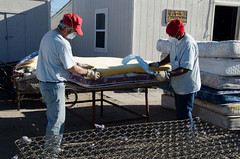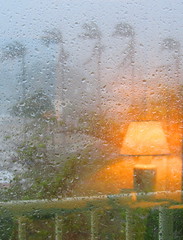 Are communities really making money off of oil and gas drilling if they have to spend nearly all of the tax revenue building infrastructure to support oil and gas drilling?
Are communities really making money off of oil and gas drilling if they have to spend nearly all of the tax revenue building infrastructure to support oil and gas drilling?The state should invest up to $5 billion in northwest North Dakota communities with the most oil activity, the president of the North Dakota Petroleum Council said Wednesday.It makes oil and gas drilling sound like a Ponzi, doesn't it? You'll make lots of money eventually, but only if you keep re-investing! As places like Virginia consider whether to allow oil and gas drilling, politicians like Gov. Bob McDonnell make it sound like every penny of tax revenue will go to existing roads and schools. But if the oil and gas industry expects the money to be spent on supporting the industry, how much will really be left for your community?
Ron Ness, while testifying to a group of legislators meeting in Williston, said communities need significant resources to do long-range planning, but the state’s grant program for those areas is only helping them react. Ness called for a five-year plan with $800 million to $1 billion per year invested in schools, roads and infrastructure for communities in the core areas of the Bakken. [...]
The industry paid $1.3 billion in oil and gas production tax last year, and will pay even more this year, Ness said. Those dollars should be targeted at the counties with the greatest oil activity, he said.
And that's to say nothing of the societal costs. "Just about anybody I talk to that's a neighbor — and some of them are getting wealthy — are sick of it. It's never going to be the same in this country, and they're starting to realize that we had it kind of good, even though we weren't No. 1 in oil and we weren't the No. 1 state economically," North Dakota rancher Donnie Nelson told NPR. "We had a good life up here."










